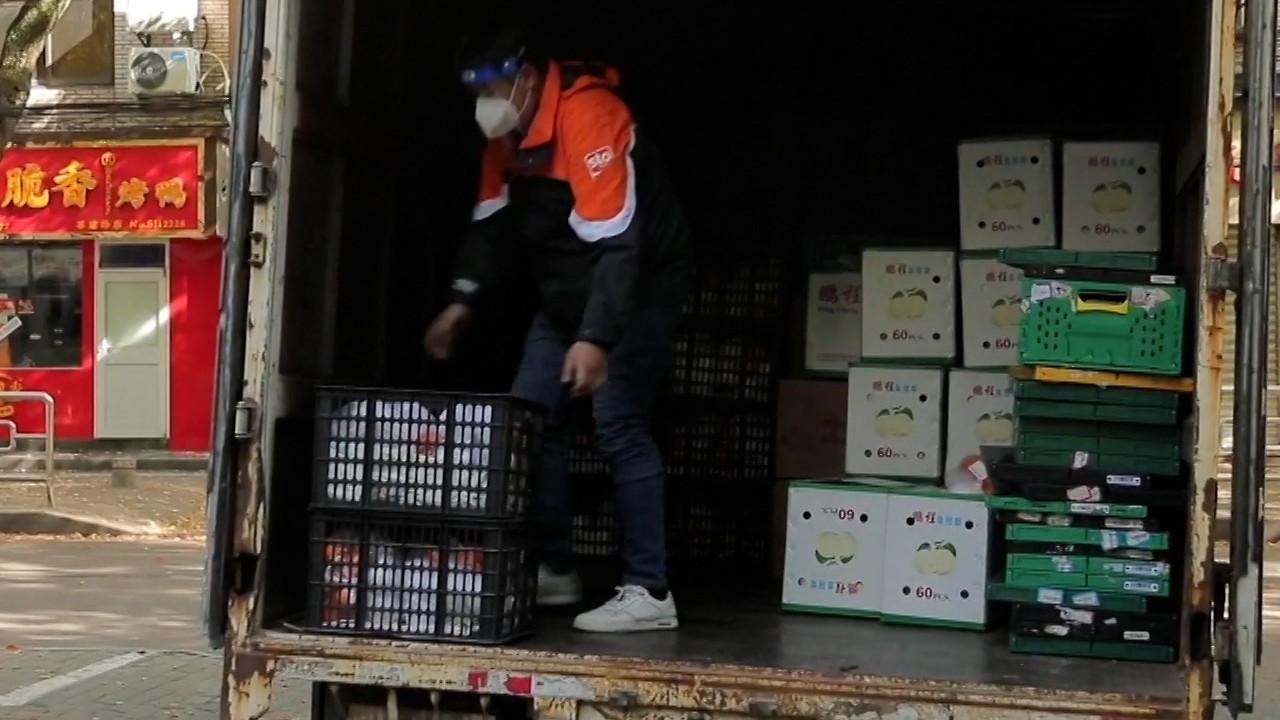
Coronavirus: Guangdong lockdown ‘would be a disaster’ for Hong Kong’s logistics sector, industry players warn
- ‘Nothing will be coming to Hong Kong and we don’t want to see that happen,’ says transport sector legislator Frankie Yick, as Guangdong steps up Covid-19 curbs
- Some local distributors and suppliers have begun stocking up on ‘anything that can be consumed’, which could drive up costs
A Covid-19 lockdown in the Guangdong region in mainland China could spell trouble for Hong Kong’s logistics sector, industry representatives and lawmakers have warned, as local distributors begin stocking up on consumable items to ensure a continuous flow of supply.
“If the pandemic continues to spread to the Guangdong area particularly … it would [be] a disaster,” said transport sector legislator Frankie Yick Chi-ming during an online conference on Tuesday. “Nothing will be coming to Hong Kong and we don’t want to see that happen.”
The concerns were raised after Guangdong province tightened pandemic prevention measures despite logging only a dozen daily cases in the past week, with cities including Shenzhen launching mass testing in some areas and Guangzhou imposing entry curbs on most arrivals.

The province made the moves as Shanghai entered a third week under lockdown after total cases topped 227,000 since March 1, with residents complaining of food shortages.
The mainland has been Hong Kong’s largest supplier of goods, providing 92 per cent of the city’s vegetables and 94 per cent of fresh pork.
Stephen Chan King-che, honourable adviser of the Hong Kong Logistics Association, said some local distributors and suppliers had begun to stock up on “anything that can be consumed” in the event the province entered a lockdown.
“If we have more inventory and goods stored in Hong Kong, that will increase storage costs for distributors and suppliers. In the end, the costs will be transferred to consumers,” he said.
President of the association Elsa Yuen May-yee said she hoped the Hong Kong government could guarantee stable supplies of goods for residents and those in the logistics industry.
Beijing orders ports, highways to stay open to maintain logistics chain
Food supplies from the mainland were disrupted amid the city’s worsening public health crisis earlier in February, after a number of cross-border truck drivers tested positive for Covid-19 in Shenzhen.
Yuen also called on the mainland and Hong Kong governments to relax the closed-loop arrangements for cross-border drivers, who had only been allowed to pick up goods at designated border checkpoints after Shenzhen tightened rules in response to a rising number of infections in Hong Kong.
Yick said land transport had dropped by nearly 85 per cent since the arrangement started in mid-March, while almost 90 per cent of cross-border drivers had lost their jobs.
Meanwhile, Yuen said shipping costs had surged tenfold since the city’s fifth wave of infections, while air freight costs had increased up to four times.
Many transport and logistics companies were operating at just 10 to 20 per cent capacity, with employees having to take a pay cut, she added.
Freight companies were losing business after some customers chose to pick up their goods directly on the mainland without going through Hong Kong, Yuen said.
“If this continues for months, Hong Kong’s status as an international logistics hub will not be guaranteed,” she said.


